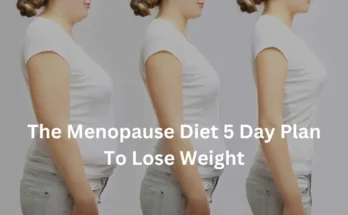Table of Contents

What are the Best Diets for Sustainable Weight Loss?
Losing weight is a common goal for many people. But finding a diet that works and is easy to stick with can be hard. On August 1, 2024, we explore some of the best diets for sustainable weight loss. These diets focus on long-term results and are backed by research. They are also simple to follow and can fit into your lifestyle.
1. Mediterranean Diet
The Mediterranean diet is inspired by the eating habits of people in countries like Italy and Greece. It is rich in fruits, vegetables, whole grains, and healthy fats. Olive oil is a key component. This diet also includes moderate amounts of fish, poultry, and dairy. Red meat is limited.
Why it works: The Mediterranean diet is balanced and nutritious. It is high in fiber and healthy fats. These help keep you full and reduce cravings. Studies show that it can help with weight loss and improve heart health.
2. DASH Diet
DASH stands for Dietary Approaches to Stop Hypertension. It was originally designed to lower blood pressure. But it is also great for weight loss. The DASH diet emphasizes fruits, vegetables, whole grains, and lean proteins. It limits salt, sugar, and unhealthy fats.
Why it works: The DASH diet is low in calories and high in nutrients. It helps control hunger and reduce calorie intake. It also encourages healthy eating habits.
3. Plant-Based Diet
A plant-based diet focuses on foods derived from plants. This includes fruits, vegetables, nuts, seeds, oils, whole grains, and legumes. Animal products are limited or excluded.
Why it works: Plant-based diets are high in fiber and low in calories. They help you feel full longer and reduce calorie intake. They are also rich in vitamins and minerals. This promotes overall health and supports weight loss.
4. Low-Carb Diet
Low-carb diets, like the Atkins or ketogenic diets, restrict carbohydrates. They focus on proteins and fats. This forces the body to burn fat for energy.
Why it works: Low-carb diets can lead to quick weight loss. They reduce insulin levels and help burn stored fat. They also help control hunger and cravings. But they may be hard to maintain long-term.
5. Intermittent Fasting
Intermittent fasting involves cycling between periods of eating and fasting. Common methods include the 16/8 method (fasting for 16 hours and eating within an 8-hour window) and the 5:2 diet (eating normally for 5 days and restricting calories for 2 days).
Why it works: Intermittent fasting helps reduce calorie intake. It also helps regulate hormones that affect hunger and metabolism. This can lead to weight loss and improved health.
6. Whole30
The Whole30 diet is a 30-day program. It eliminates sugar, alcohol, grains, legumes, soy, and dairy. It focuses on whole, unprocessed foods.
Why it works: The Whole30 diet can help identify food intolerances and reset eating habits. It promotes weight loss by cutting out high-calorie, low-nutrient foods. But it is strict and may be challenging to follow.
Tips for Sustainable Weight Loss
- Choose a diet that fits your lifestyle: The best diet is one you can stick with. Pick a plan that you enjoy and that fits into your daily routine.
- Focus on whole foods: Eat plenty of fruits, vegetables, whole grains, and lean proteins. Avoid processed foods and sugary drinks.
- Stay hydrated: Drink plenty of water throughout the day. It helps control hunger and supports metabolism.
- Get regular exercise: Combine your diet with regular physical activity. Aim for at least 150 minutes of moderate exercise per week.
- Listen to your body: Pay attention to hunger and fullness cues. Eat when you’re hungry and stop when you’re full.




